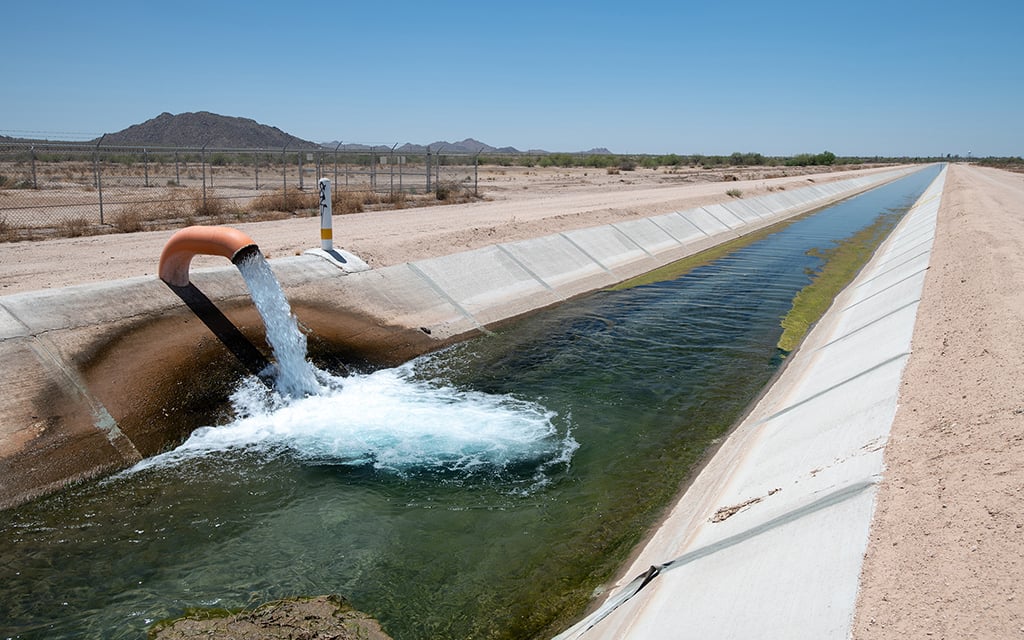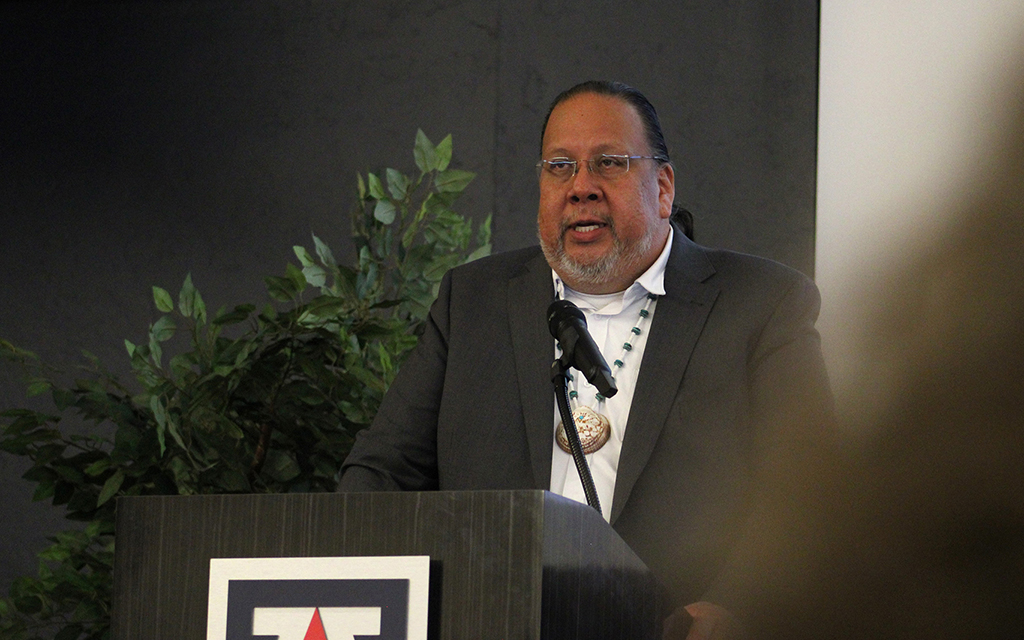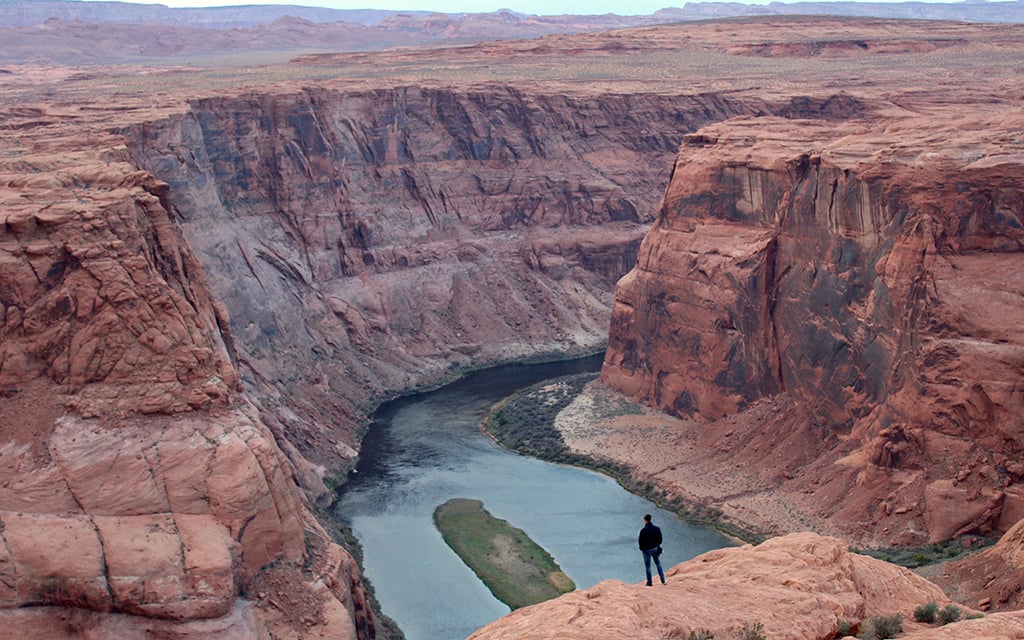
Water enters an irrigation canal on the Gila River Indian Reservation in this 2021 file photo. The Gila River Indian Community, among the most important tribal players in ongoing negotiations about management of the Colorado River, balked at a plan recently put forward by Arizona and two other Lower Basin states. (Photo by Ted Wood/The Water Desk)
The Gila River Indian Community said it does not support a plan backed by three states for managing the Colorado River’s shrinking water supply, and is instead working instead with federal officials to develop its own proposal for water sharing.
Gila River Indian Community Gov. Stephen Roe Lewis said Wednesday at a meeting of policy experts and water scientists in Tucson that his tribe would not go along with the plan unveiled a week earlier by the Lower Basin states – Arizona, California and Nevada.
“This is not the time to be standing on the sidelines,” Lewis said. “We all have a responsibility to do what we can. And that’s why the community can’t support the current Lower Colorado River approach as it stands now.”
The tribe is among the most prominent of the 30 federally recognized tribes that use the Colorado, and has signed high-profile deals with the federal government in recent years to get big payments in exchange for water conservation. Those deals were celebrated by Arizona’s top water officials at the time.
But Wednesday’s announcement adds a new wrinkle to an already-complicated process.
Last week, the seven states that use the Colorado River unveiled competing plans for managing the river’s water. The Lower Basin states revealed one, and the Upper Basin states – Colorado, Utah, Wyoming and New Mexico – revealed another.
The two plans reflect stark ideological differences between the two groups, marking the latest disagreement between rival camps that have argued over water management for decades.
Lewis, who has positioned his tribe as an ally to the federal government in helping save water, outlined a few major sticking points that led Gila River to work on its own proposal.
One issue is that the Lower Basin’s proposal creates what Lewis called an “unfair burden” on the state of Arizona. Under the proposed plan, all seven states would have to cut back on demand for water if levels in Lake Mead and Lake Powell drop below a predetermined threshold in the future. Arizona would take the largest of those cutbacks.
Another, he said, is that the Lower Basin’s plan does not explain how it would mitigate the impact of those potential new water cutbacks. Lewis said he would like to either see plans to identify new sources of water away from the Colorado River that could replace water lost to cutbacks, or financial compensation.
States are under pressure to agree on plans to manage the river before 2026, when the current guidelines for sharing its water expire. Both of last week’s plans came just ahead of a deadline from the Bureau of Reclamation, the federal agency that manages the West’s dams and reservoirs. The deadline was an effort to get the ball rolling on new river rules with enough time to implement them before a potential change in administrations after this fall’s election.
Reclamation officials said they expect to work with states over the spring and summer and reach a draft for post-2026 river management rules by the end of 2024.

Gila River Indian Community Gov. Stephen Roe Lewis at the Tucson event where he said the tribe does not support the Lower Basin states’ plan to manage the Colorado River. (Photo by Alex Hager/KUNC)
Now, Lewis and his staff are working with Reclamation on what could potentially be a third proposal, one he hopes will be released in weeks, rather than months.
“It’s potentially not just the Gila River, because this will affect other tribes as well,” Lewis said. “I wouldn’t be surprised if other tribes started to register their concerns as well.”
As states and the federal government draw closer to a new set of river management rules, some tribes have repeatedly expressed frustration about being excluded from negotiations. Tribal communities often lack reliable access to clean water due to aging infrastructure and a history of underinvestment, and many are calling for greater inclusion going forward.
Lewis said that was not the issue in this case, and that the Gila River Indian Community was included in talks.
“We were at the table,” he said. “It’s just the proposal, the finished product as it is right now, doesn’t reflect our concerns.”
-This story is part of ongoing coverage of the Colorado River, produced by KUNC and supported by the Walton Family Foundation.
